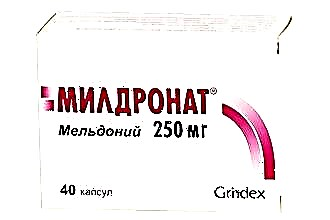Peach oil is a base oil that has a pronounced regenerating, anti-inflammatory, emollient and antioxidant effect. Rich in vitamins, micro- and macroelements, the product is used in official and folk medicine for the treatment of dermatological, cardiovascular, endocrine and otolaryngological diseases. By instilling peach oil in your nose, you can stop local manifestations of chronic and acute rhinitis within a few days.
 The drug is one of the hypoallergenic oils that do not cause rashes and other side reactions even in the presence of diathesis.
The drug is one of the hypoallergenic oils that do not cause rashes and other side reactions even in the presence of diathesis.
For this reason, it can be used to relieve catarrhal processes in the nasopharyngeal mucosa in adults and preschool children.
Timely and competent use of an antioxidant agent prevents the development of serious complications such as sinusitis, atrophic rhinitis, etc.
Biochemical composition
Can peach oil drip into my nose? The natural product is rich in vitamins, organic acids and trace elements that are involved in many biochemical processes. Experts recommend using the oil to relieve the symptoms of colds, due to its ability to accelerate the healing of ciliated epithelium, destroy pathogens and soften nasal crusts in infants.
Cosmetic oil should not be used for therapeutic purposes, since it may contain fragrances, fragrances and preservatives that cause an allergic reaction.
The medicinal properties of the drug are due to its rich biochemical composition, which includes:
- retinol;
- rutin;
- tocopherol;
- vitamin C;
- calciferol;
- B vitamins;
- carotenoids;
- flavonoids;
- pectins;
- calcium;
- phosphorus;
- zinc;
- sodium;
- iron;
- selenium.
The fortified emulsion accelerates cellular metabolism, thereby increasing local immunity. This accelerates the process of elimination of pathogens in the foci of inflammation, which leads to regression of inflammation and recovery.
Pharmacological properties
Peach nasal oil is an optimal emollient and disinfectant that can be used to eliminate all local manifestations of acute and chronic rhinitis. However, herbalists warn that a natural antioxidant can be used exclusively as a symptomatic drug. The active components of the drug are not able to destroy the very cause of the development of rhinitis, sinusitis and other ENT diseases.
An oily liquid with a pleasant nutty aroma contributes to:
- elimination of catarrhal processes and hyperemia in the ciliated epithelium;
- strengthening the walls of blood vessels, as a result of which swelling in the nasopharynx decreases;
- increasing local immunity and eliminating opportunistic microorganisms from the mucous membranes of the upper respiratory tract;
- softening dry crusts formed in newborns and persons suffering from atrophic rhinitis;
- restoration of the integrity of the affected tissues in the nasopharyngeal cavity.
The emulsion contains a large amount of vitamin C and tocopherol, which stimulate the activity of the immune system. Vitamins accelerate the process of excretion of metabolites of the pathogenic flora from the affected tissues, which affects the rate of their epithelization and an increase in tissue reactivity.
Indications for use
 The hypoallergenicity and therapeutic properties of the drug make it possible to use it in the treatment of ENT diseases not only in adults, but also in newborns. The systematic use of the emulsion contributes to the normalization of tissue trophism, which affects the rate of regression of inflammation. In this regard, peach oil should be dripped into the nose with the development of the following diseases:
The hypoallergenicity and therapeutic properties of the drug make it possible to use it in the treatment of ENT diseases not only in adults, but also in newborns. The systematic use of the emulsion contributes to the normalization of tissue trophism, which affects the rate of regression of inflammation. In this regard, peach oil should be dripped into the nose with the development of the following diseases:
- acute rhinitis;
- allergic rhinitis;
- sinusitis;
- bacterial sinusitis;
- tonsillitis;
- pharyngitis;
- flu;
- vasomotor rhinitis;
- atrophic rhinitis.
Before using the oil for the treatment of pregnant women and infants, an allergy test should be performed to make sure that there are no adverse reactions.
Instilling a heated emulsion into the nasal passages leads to a decrease in swelling and, accordingly, facilitates nasal breathing. Regular use of the drug promotes healing of microdamages in the nasopharyngeal mucosa and increases immunity, which reduces the risk of re-development of the disease.
Allergotest
Allergic reactions aggravate the course of colds, which is caused by swelling of the irritated nasopharyngeal mucosa. Despite the practical absence of contraindications, peach oil should be instilled into the nose for children and adults only after a simple allergy test:
- apply a small amount of the warmed emulsion to the back of the elbow;
- within 1-2 hours, observe the reaction of the skin;
- in the absence of itching, hyperemia and erythematous vesicles, you can use the drug as directed.
To make sure it is safe to use an antioxidant for rhinitis, apply 1 teaspoon. liquid on a handkerchief. Breathe in the oil vapor for 30-40 minutes. If you experience itching, congestion and watery eyes, stop using the drug.
Newborn treatment
 A runny nose in infants is almost always accompanied by the formation of dense crusts in the nasal passages. They cause discomfort, as a result of which the child becomes moody and whiny. By burying peach oil with a cold, you can quickly eliminate not only crusts in the nose, but also inflammation in the mucous membrane.
A runny nose in infants is almost always accompanied by the formation of dense crusts in the nasal passages. They cause discomfort, as a result of which the child becomes moody and whiny. By burying peach oil with a cold, you can quickly eliminate not only crusts in the nose, but also inflammation in the mucous membrane.
During the procedure, you should adhere to the following recommendations:
- heat the oil to 37-37 degrees;
- clear the nose of accumulated mucus;
- lift the head of the newborn;
- drip 2 drops of the drug into each nostril;
- after 10 minutes, remove the softened crusts with cotton wool.
To prevent pathogens from entering the mucous membrane, use only sterile cotton wool for the procedure.
It is advisable to clean the nasal passages daily until the symptoms of the common cold disappear. Regular performance of the procedure prevents the formation of dense crusts, which make the child uncomfortable.
Treatment of rhinitis in children
Otolaryngologists warn that the effectiveness of therapy is largely determined by the speed and frequency of antioxidant use.
To quickly eliminate the unpleasant manifestations of a cold, the drug must be used to treat the nose at the first signs of rhinitis. How should peach oil be buried in a child's nose?
To speed up recovery, the following rules must be taken into account while using the drug:
- rinse your nose with saline (saline);
- blow mucus out of the nasal passages, alternately pinching each nostril;
- drip 1-2 drops of the drug into the nose;
 perform the procedure at least 3-4 times a day.
perform the procedure at least 3-4 times a day.
To completely eliminate the symptoms of a cold, the procedure must be performed for at least 14 days in a row.
To reduce the viscosity of the liquid secretion and speed up its evacuation, experts recommend adding 1 drop of lavender essential oil to 1 tsp of the preparation. The concentrated essential liquid stimulates the irritation of the receptors in the ciliated epithelium, as a result of which the production and process of separation of mucus from the walls of the nasopharynx is accelerated.
Treatment of the common cold in adults
The principles of treatment of acute rhinitis in adults practically do not differ from the above scheme. The only difference is in the dosage of the drug. To speed up the regression of catarrhal processes, 3-4 drops of warmed peach oil should be instilled into each of the nasal passages at least 4 times a day.
Treatment of chronic rhinitis and bacterial sinusitis requires a longer course of treatment. In addition, to eliminate pathogenic flora in the affected mucosa, it is necessary to use systemic and local antibiotics that affect the reproductive function of pathogenic agents. During antibiotic therapy, experts advise using peach oil.
Instructions for use in the nose:
- use a syringe and a mild saline solution to flush the sinuses;
- clear the nose of accumulated mucus and crusts;
- mix peach seed oil and St. John's wort in a 3: 1 ratio;
- instill 2 drops of the solution into each nostril.
You need to perform the procedure at least 4 times a day for 21 days. The lack of positive dynamics, coupled with a deterioration in well-being, is a good reason for seeking help from a specialist.
When a viral rhinitis occurs, often accompanying influenza and ARVI, doctors recommend inhalation. You can speed up the passage of mucus and facilitate nasal breathing when using such a medicinal solution:
- Mix ½ liter of boiled water with 1 tbsp. drug;
- add 2 drops of lemon and cedar essential oil to the liquid;
- heat the solution to 50-60 degrees;
- breathe in vapors for 10 minutes.
Important! Oil inhalation should not be used to treat infants.

 perform the procedure at least 3-4 times a day.
perform the procedure at least 3-4 times a day.

